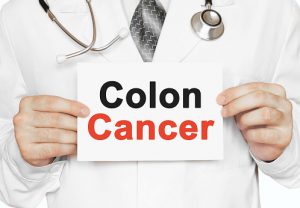Earlier this week, the American Cancer Society updated its guidelines for colon and rectal cancer screenings and is now calling for all adults to be screened by age 45 and no longer wait until 50 years of age, which was the previous recommendation.
Colon cancer is the third most commonly diagnosed cancer and the second leading cause of cancer death in men and women combined in the United States. The American Cancer Society estimates annually there are over 136,000 people diagnosed with the disease and approximately 50,000 of those cases are fatal.
The change in guidelines is in large part due to recent data that notes an increase in the number of colon and rectal cancer diagnoses in younger adults in recent years. According to reports there has been a 51% increase of these types of cases in the U.S. in people under the age of 50 since 1994. Possible reasons for the rise are poor diet or obesity.
Conversely, the number of both the number of cases and the number of deaths linked to colon and rectal cancer has declined in older adults. Many attribute the decline to increased efforts to screen this population.
Regular screening is one of the most powerful weapons for preventing colon cancer. Screening can also result in finding cancer early, when it is easier to treat and more likely to be curable. If polyps are found during colon screening, they can usually be removed before they have the chance to turn into cancer.
Common symptoms of colon cancer include:
Changes in bowel habits or a change in stool consistency that lasts more than four weeks
Rectal bleeding
Persistent abdominal discomfort, such as cramps, gas or pain
Feeling that bowels do not empty completely
Weakness or fatigue
Unexplained weight loss
If you are experiencing any of these symptoms or are over the age of 45, Jamaica Hospital urges you to get screened. To make an appointment at Jamaica Hospital’s Ambulatory Care Center and schedule your screening, please call 718-206-7001.
All content of this newsletter is intended for general information purposes only and is not intended or implied to be a substitute for professional medical advice, diagnosis or treatment. Please consult a medical professional before adopting any of the suggestions on this page. You must never disregard professional medical advice or delay seeking medical treatment based upon any content of this newsletter. PROMPTLY CONSULT YOUR PHYSICIAN OR CALL 911 IF YOU BELIEVE YOU HAVE A MEDICAL EMERGENCY.

